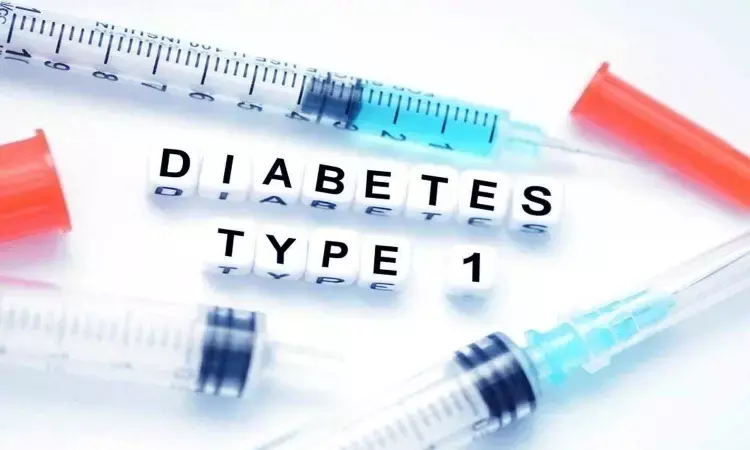- Home
- Medical news & Guidelines
- Anesthesiology
- Cardiology and CTVS
- Critical Care
- Dentistry
- Dermatology
- Diabetes and Endocrinology
- ENT
- Gastroenterology
- Medicine
- Nephrology
- Neurology
- Obstretics-Gynaecology
- Oncology
- Ophthalmology
- Orthopaedics
- Pediatrics-Neonatology
- Psychiatry
- Pulmonology
- Radiology
- Surgery
- Urology
- Laboratory Medicine
- Diet
- Nursing
- Paramedical
- Physiotherapy
- Health news
- Fact Check
- Bone Health Fact Check
- Brain Health Fact Check
- Cancer Related Fact Check
- Child Care Fact Check
- Dental and oral health fact check
- Diabetes and metabolic health fact check
- Diet and Nutrition Fact Check
- Eye and ENT Care Fact Check
- Fitness fact check
- Gut health fact check
- Heart health fact check
- Kidney health fact check
- Medical education fact check
- Men's health fact check
- Respiratory fact check
- Skin and hair care fact check
- Vaccine and Immunization fact check
- Women's health fact check
- AYUSH
- State News
- Andaman and Nicobar Islands
- Andhra Pradesh
- Arunachal Pradesh
- Assam
- Bihar
- Chandigarh
- Chattisgarh
- Dadra and Nagar Haveli
- Daman and Diu
- Delhi
- Goa
- Gujarat
- Haryana
- Himachal Pradesh
- Jammu & Kashmir
- Jharkhand
- Karnataka
- Kerala
- Ladakh
- Lakshadweep
- Madhya Pradesh
- Maharashtra
- Manipur
- Meghalaya
- Mizoram
- Nagaland
- Odisha
- Puducherry
- Punjab
- Rajasthan
- Sikkim
- Tamil Nadu
- Telangana
- Tripura
- Uttar Pradesh
- Uttrakhand
- West Bengal
- Medical Education
- Industry
Diabetes distress reduction improves blood sugar control in type 1 diabetes: Study

USA: Reductions in diabetes distress (DD) do not affect blood sugar levels directly but through improvements in self-care behavior in patients with type 1 diabetes (T1D), finds a recent study in the journal Diabetes Care. The findings support the significance of integrating disease management with DD interventions to maximize improvements in glycemic outcomes.
Danielle Hessler, University of California, San Francisco, San Francisco, CA, and colleagues aimed to explore associations between DD reductions and improvements in glycemic outcomes in the context of a DD randomized clinical trial.
It included 301 adults (mean age 45.1 years; mean baseline HbA1c was 8.8%) who participated in a two-arm trial aimed at reducing DD (DD-focused OnTrack group vs. education-oriented KnowIt group). People were assessed for DD, self-care, HbA1c, and frequency of hypoglycemia at baseline and 9 months later.
Structural equation models evaluated hypothesized pathways among changes in DD, self-care, and glycemic outcomes in the total sample and by intervention group.
Key findings of the study include:
- Reductions in DD were significantly and independently associated with better self-care, including fewer missed insulin boluses, more frequent insulin adjustment, improved problem-solving skills, more blood glucose monitoring, and greater adoption of continuous glucose monitoring.
- In turn, better self-care was linked with better glycemic outcomes, including fewer episodes of hypoglycemia and improved HbA1c over time.
- Fit indices indicated good fit of the model to the data (confirmatory fit index = 0.94, root mean square error of approximation = 0.05), with stronger and more meaningful associations for OnTrack than for KnowIt.
"In the context of an intervention to reduce DD for adults with T1D, results indicate that reductions in DD do not affect glycemic outcomes directly but through improvements in self-care behavior," wrote the authors. "Findings support the importance of integrating disease management with DD interventions to maximize improvements in glycemic outcomes."
Reference:
The study titled, "Reductions in Management Distress Following a Randomized Distress Intervention Are Associated With Improved Diabetes Behavioral and Glycemic Outcomes Over Time," is published in the journal Diabetes Care.
DOI: https://care.diabetesjournals.org/content/early/2021/05/13/dc20-2724
Dr Kamal Kant Kohli-MBBS, DTCD- a chest specialist with more than 30 years of practice and a flair for writing clinical articles, Dr Kamal Kant Kohli joined Medical Dialogues as a Chief Editor of Medical News. Besides writing articles, as an editor, he proofreads and verifies all the medical content published on Medical Dialogues including those coming from journals, studies,medical conferences,guidelines etc. Email: drkohli@medicaldialogues.in. Contact no. 011-43720751


